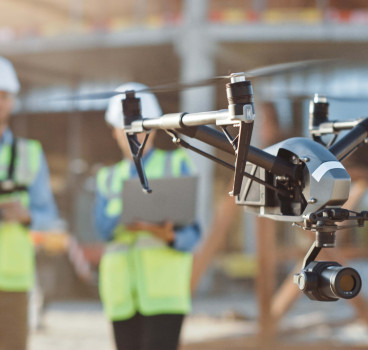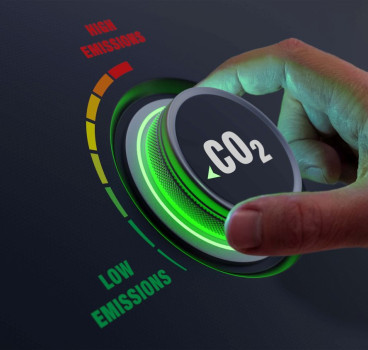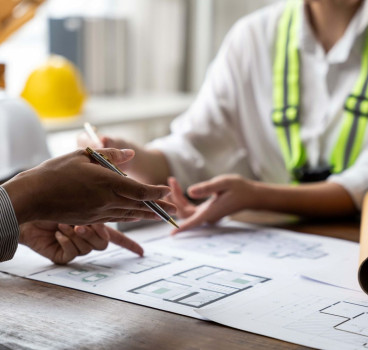Will Blockchain technology revolutionise the supply chain?
The much-hyped blockchain technology may well not have reached full maturity but this emerging technology has potential to revolutionise the built environment, and for the companies that adopt this technology it has already added tens of millions of pounds to their market value. In an industry which is slow to adopt new technologies and characterised by fragmentation and outdated systems in the flow of information, blockchain can bring transparency and efficiency to the supply chain. But what is blockchain and how can the construction supply chain benefit from it?
Put simply, a blockchain is an electronic, tamper-proof database of transactions, with new deals added to a chain and then stamped and protected with a mathematical equation. A blockchain takes out the middleperson such as a bank or a lawyer, and allows two or more parties to transfer money or a contract, or other information in real time and across borders without third-party intervention. Clearly a technology that is appealing to global financial and legal institutions, blockchain also offers impacts and opportunities across design, engineering and construction.
Full transparency
While technological advances both in terms of materials and computer sciences offer the built environment a great source of innovation, they also make it more fragmented. This is why blockchain can provide visible accountability across a project and can speed up processes, whilst at the same time being under scrutiny of all those involved. The technology provides new ways to track the flow of materials, payments and contracts within supply chains. In a blockchain, all parties will know in real-time which materials have arrived at a construction site, who handled them and where they originate from. As products move from one place to another, an insulation manufacturer for example will know how their products are moving and where they are. Manufacturers ultimately want to ensure goods get to where they're supposed to go and those purchasing the materials want to make sure it originated from a reputable source. By including both ends of that supply chain, it addresses the threat of counterfeit goods, fraud and theft.
Blockchain technology offers great versatility and can add transparency to every type of agreement and transaction in a construction project. In terms of the supply chain, a blockchain will ensure that when any contract or agreement is amended, it is immediately seen by all parties. A blockchain ledger can also improve financial liquidity. For example an aggregated record between manufacturers/distributors and buyers can also include the main contractors and developers, so that once all parties agree materials have been delivered, payments on invoices can be released.
Smart contracts
The construction industry is often litigious in nature particularly when it comes to late payments and the associated costs involved. Blockchain technology could work as a trustworthy contract administrator through the creation of a smart contract which negates the need for lawyers. This smart contract functions on the if/then concept. For example, if a contractor installs insulation products on a project then he asks for it to be inspected. If the inspection is successful, then the contractor is paid. A smart contract can cover this if/then scheme which can be registered on the blockchain.
This increased transparency leads to increased accountability and ultimately better control of the project. A more open building process will result in a greater alignment of industry and client interests whilst at the same time minimising disputes and risk.
A challenging proposition
While blockchain offers a wealth of benefits, there are of course challenges. In terms of audit transparency and validation, is validation self-proclaimed or would a third-party have to assure it? An inherent advantage of blockchains is that they cannot be altered and therefore guarantee trust. But what if the input is a lie in the first place, then you are trusting lies. Therefore there needs to be a process that guarantees truth at the input stage. There also needs to be clarification as to who owns the data? Is it the blockchain creator, the people using it and adding data or is it collective?
In an industry which is striving to be more efficient and sustainable, large public blockchains require huge amounts of energy to extract the information needed to create the blocks (i.e records) that are linked to form the chains. Is this not counterintuitive in the first place? Blockchain applications require a great deal of effort and cost to work so it is paramount that there is inherent value in the effort and whether the final application is appropriate.
For what is essentially a database that's validated by a wider community, the adoption of blockchain is expected to be slow and steady. In terms of the insulation industry we know that there are already digital schemes in place such as BIM (Building Information Modelling). Plans are also underway to digitise CE marking, as well as work on other schemes such as Lexicon and having product data templates for each sector. This will hopefully see the industry get to grips with the issue of product substitution, but we need to ensure that all these schemes do not compete with each other and that they are in fact complementary.
With such a lot of hype across the globe around blockchain, the question will remain; what can it be used for and will it bring value to the construction sector?
Additional Blogs

Drones in Construction: Are UAVs the Future of Site Inspections?
Technology integration is necessary for construction companies to survive in this evolving industry. Unmanned aerial vehicles or UAVs, such as drones, are poised to be the next big thing in site...
Read moreThe unseen carbon cost of late design changes
There is a particular moment in almost every project when someone says, “It’s only a small change.” A wall shifts half a metre. A grid tightens. A plant room grows. A façade is reconfigured to...
Read more

When compliance becomes the enemy of good design
There is a particular comfort in compliance. It comes in the form of certificates, checklists and sign-offs. It reassures clients, satisfies insurers and protects professionals from liability. In an...
Read more